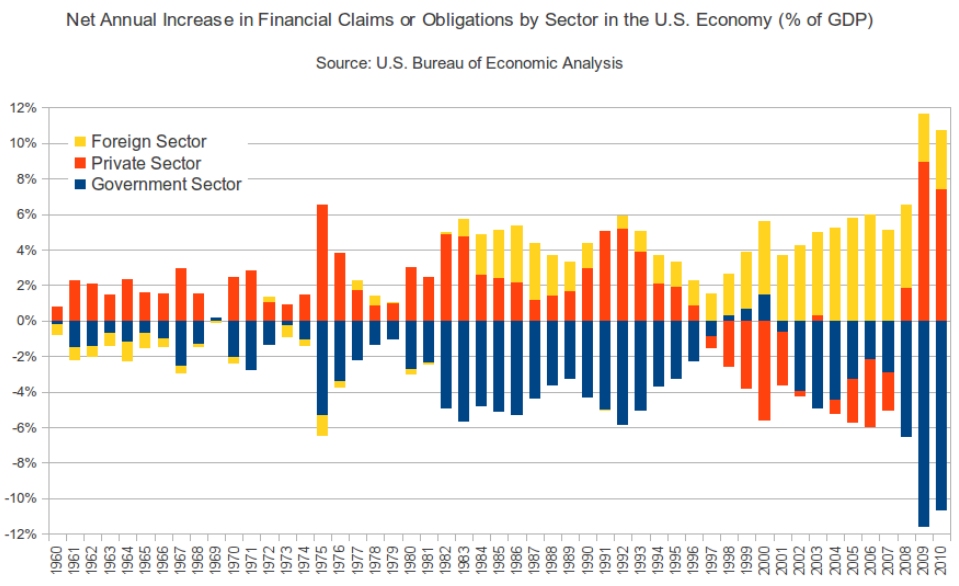After failing high school - disillusioned with the meaning of life - David drifted until he was introduced to the Metaphysics of Quality. He now spends his time living the philosophy and hopefully demonstrating to others its greatness!

The Metaphysics Of Quality supports Bernie Sanders
With polls showing Hillary Clinton as the likely Democratic nominee it is important to note at this point in history that Bernie Sanders is the candidate most supported by the Metaphysics Of Quality.
Compared to his opponents Bernie has consistently stood on the side of what made sense intellectually despite what was culturally expedient. While intellectual stubbornness is not always a clear sign of intellectual correctness, since he was a young academic protesting against the civil rights movement, Bernie has continually been on the right side of history.
This consistency is perfectly demonstrated in his rhetoric around income inequality. As he said in the 1970’s:
“A handful of people own almost everything … and almost everybody owns nothing. A handful of people make the decisions and the vast majority of people have virtually no control over their lives.. The rich are getting richer and the poor are getting poorer, and the vast majority in the middle are having a harder and harder time,”
And on his 2016 campaign website:
“America now has more wealth and income inequality than any major developed country on earth, and the gap between the very rich and everyone else is wider than at any time since the 1920s.. There is something profoundly wrong when the top one-tenth of one percent owns almost as much wealth as the bottom 90 percent.”
The time is right for the United States to make some difficult, drastic, changes with so many problems facing the nation in this new century. Rightly, or wrongly, the way that change works in western democracies is a revolution of freedom against old rituals – and boy are some of the problems facing the United States old. Problems which include a crumbling infrastructure, student debt that’s skyrocketing, bad money influencing elections, a failed war on drugs, unsustainable wages, changing demographics, race inequality, expensive healthcare, and an unstable middle east.
Bernie has consistently spoken about each of these issues and how he will fix them. His logical consistency and correctness is supported by intellectual morality. Many of his new policies are dramatic enough that they would drastically change the country toward a better direction.
The right thing to do then, metaphysically, is to support Bernie in his 2016 campaign to become president.

The Diagnosed Threat Of Artificial Intelligence
With Elon Musk having recently said he will be giving away a Billion USD to fund research into AI to ensure risks are minimised – I wonder if there’s not already a free solution to the unique problem presented by AI in the codes of a moral philosophy we know.
In the Metaphysics Of Quality the Law of the Jungle declares that biological quality should always prevail over inorganic quality. In this case – I propose a simple AI rule. If a machine, controlled by software, is capable of taking a life in its day to day operation – then the machine must be able to detect life and avoid killing or injuring it where possible, unless of course specifically designed to do so (weapons).
That’s it. Doing scientific research to solve what is fundamentally a philosophical issue seems a lot like declaring war on an international policy issue [The War on Terror] that is – lots of money spent and bad results. Unless, of course, the research improves the life detecting capabilities of machines to be more affordable. I live in hope.
Science vs Society
There’s a great video on Youtube(above) called ‘The War on Science’ by ASAPScience which outlines an oft misunderstood conflict. That conflict is when:
“Science and society are often at odds”.
Putting the conflict in these terms clearly shows the wrong-headed thinking of those who are undercutting the intellectual values of science with the social values of society. Current social norms may be more convenient to defend and continue for society but it not intelligent to continue thinking the same thing when evidence shows otherwise.
In fact, rather than simply wrong-headed, such defence of social values in the face of intellectual values to the contrary, is immoral and not supported by the MOQ.
The historical risk though, is that without the Metaphysics of Quality the intellectual level can start to undercut the quality of society and defend biological values at the risk of social cohesion. This could well explain why many a political conflict throughout the world simply are between those who defend social values vs those who support intellectual ones.
The MOQ however, shows there is a more nuanced way to view social vs intellectual conflicts such as this. Within the structure of the MOQ is the ability to morally defend intellectual values while not risking social decay in the process. This is clearly shown with the MOQ’s ‘Codes of Morality’ and in the difference between ‘The Law’ and ‘Intellectual Morality’ the latter of which is not acknowledged with our current Metaphysics.

The Morality of Money
‘Money, in the MOQ, is a pure and simple index of social quality.’
Robert Pirsig
With money representing social quality, the direct link between a government’s budget and what it considers as valuable becomes immediately apparent. Looking at the budgets of the US, UK and Australia is therefore a great way to see what each culture deems valuable.

A lot can be said about a culture by what it spends its money on. In fact it could be said that a culture is what it spends its money on, because a culture is what it values. I won’t get into the details of each budget and the morality of each according to the MOQ in this post but first I just want to spend some time discussing the limits of a budget, what they’re thought to be, and what they actually are.
Basically, current economic thinking claims that budgets are constrained by their deficit. A government’s budget is compared to a household budget and deficits are seen as some kind of a sin to be avoided and surpluses are seen as a good to be continued. However the problem with this thinking is that a government’s budget is not constrained as per a household due to the fact that a government, unlike a household, can produce its own money without constraint. How then, did we end up with this discrepancy?
Historically, the value of money had been pegged against the gold standard, and as there was a limited supply of gold, there was indeed a limit to how much money could be spent relative to the amount of gold available. However in 1971 President Nixon ended international convertibility of the U.S. Dollar to gold and floated the currency. Since then, standard economic thinking doesn’t appear to have adapted to the fact that there is no longer such a restriction in the amount of money a government can produce!
That’s not to say there aren’t constraints however. Simply speaking, the true constraint to an economy is inflation when ‘too much money chases too few goods’. This isn’t a risk though, when the output(goods) of an economy isn’t at a maximum as would be the case when there is unemployment. Because of this, a government backed Job Guarantee, would be not only obviously good for the individuals unemployed, but a great way to keep an otherwise unemployed workforce, skilled and available for the private sector when required.
And this is the argument of Modern Monetary Theory(MMT), which supports not only a Job Guarantee but also government deficits. Deficits are seen as typical because the private sector, which would then be in surplus(graph above), values saving money for harder times. Such economic thinking, resulting in a great increase in the quality a society can produce, is strongly supported by the Metaphysics of Quality and why I’ve written about it here. MMT is becoming increasingly popular as an alternative to the austerity being applied to many struggling economies around the world.
The Misdiagnosed Threat Of Artificial Intelligence
I’ve seen lots of talk recently about the moral threat of AI. So, what does the MOQ have to say about it?
To start with, how about a fact which appears to be lost in much of the discussion.
No computer has ever made a moral judgement which it hasn’t been told to make and so there is no reason to think this will ever change. Believing this will change spontaneously as a result of improved intelligence of machines is just that, a leap of faith, and not supported by evidence. As it stands, it is the human programmer making all moral judgements of consequence. Computers, being 0’s and 1’s, are simply the inorganic tools of the culturally moral programmer.
Unfortunately though, this isn’t likely to be appreciated any time soon because of a philosophical blind spot our culture has. That blind spot is our metaphysics which neglects the fundamental nature of morality and in doing so gets confused about both where morality comes from and whether machines can make moral judgements independently of being instructed to do so.
For example, in the case of a recent foreign affairs article – Nayed Al-Rodhan appears to believe that AI will start making moral judgements as a result of more ‘sophistication’ and learning and experience.
“Eventually, a more sophisticated robot capable of writing its own source code could start off by being amoral and develop its own moral compass through learning and experience.”
The MOQ however makes no such claim which, as already mentioned, is contrary to our experience. According to our experience it is only human beings and higher primates who can make social moral judgments in response to Dynamic Quality. Machines are simply inorganic tools and their components only make ‘moral decisions’ at the inorganic level.
That’s not to say though, that there aren’t any dangers of AI and that all risks are overblown. AI – being loosely defined as advanced computational/mechanical decision not requiring frequent human input – threatens society if it is either poorly programmed and a catastrophic sequence of decisions occurs or if it is well programmed by a morally corrupt programmer. However each of these scenarios aren’t fundamentally technological but philosophical, psychological & legal in nature.
The unique threat of AI is this aforementioned increase in freedom of machines to make decisions without human intervention making them both more powerful and more dangerous. The sooner our culture realises this, the sooner our culture can start to discuss these moral challenges and stop worrying about the machines ‘taking over’ in some kind of singularity apocalypse. Because unfortunately, if we don’t understand the problem, a solution will be wanting, and therein lies the real threat of AI.





